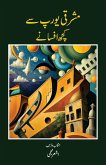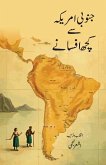It is indubitable that literature encompasses a certain degree of deviation. The use of literary language represents a manifestation of this deviation. The language employed in literature is distinct from that utilized in other scientific disciplines, as well as from everyday language. The creative use of language elements that are embedded within its structure is a defining feature of literary language. In addition, the act of expression printing is worthy of note. It can be surmised that literature, like language, is resistant to change. This implies that every writer, by virtue of being a writer, has a certain degree of resistance. The world he creates through his deviation from it is not without consequence. The concept of "literary language," particularly as a means of articulating the tenets of literary tradition, is similarly imbued with a certain degree of prestige. A writer expresses a particular perspective by selecting a specific element of literary language. In other words, he asserts that he will accept a specific paraphrase that is already established within the tradition, adhere to a particular literary canon, or even dare to invent an entirely new paraphrase. He will either align with some aspect of the tradition itself or become an imitator. The act of adaptation serves to reinforce the tradition, demonstrating its continued relevance and validity even in the face of changing times. Conversely, an unconventional style creates a dissonance within the tradition, reflecting a concern and anxiety about the past and tradition. Even when it is entirely fantastical in nature, it nevertheless retains some degree of connection to the real world. The decision to employ fantasy as a literary device represents a critique of realism as an inadequate mode of representing the world. The position of literature with regard to linguistic, stylistic, or other aspects can be characterized as either one of adaptation, resistance, or as belonging to a grey area beyond these two positions. Furthermore, it can be a means of remaining in the world and observing it. This stance is situated within the same socio-political context, where there is a persistent pursuit of establishing and consolidating political power and authority. In light of these considerations, we propose that this literature may be designated as a form of resistance, which interrogates the various power structures, symbols, phenomena, and strategies that shape our reality. It challenges these structures, rejects them, and illuminates the shadows cast by them, from which the light of truth emerges.
Hinweis: Dieser Artikel kann nur an eine deutsche Lieferadresse ausgeliefert werden.
Hinweis: Dieser Artikel kann nur an eine deutsche Lieferadresse ausgeliefert werden.








